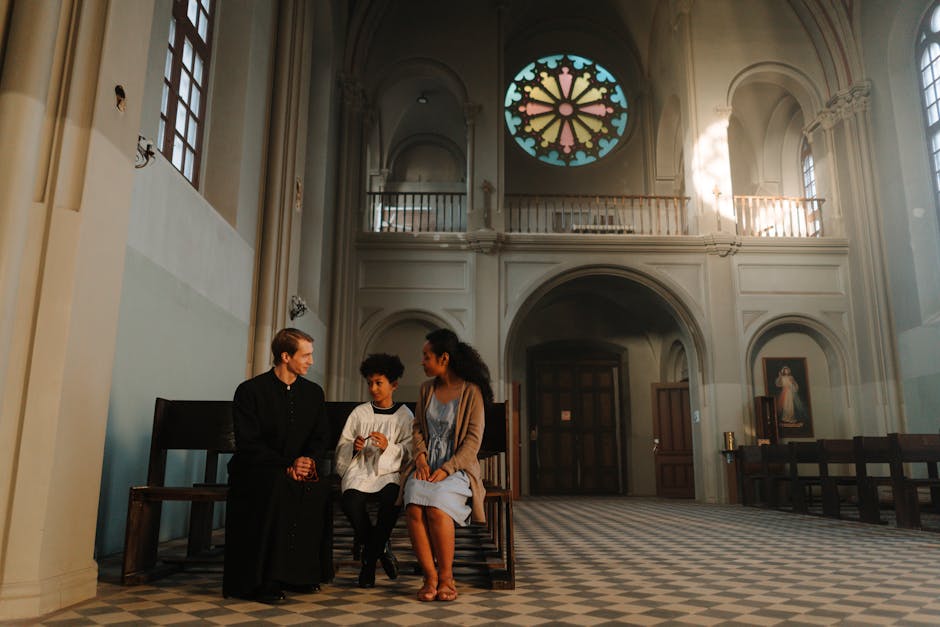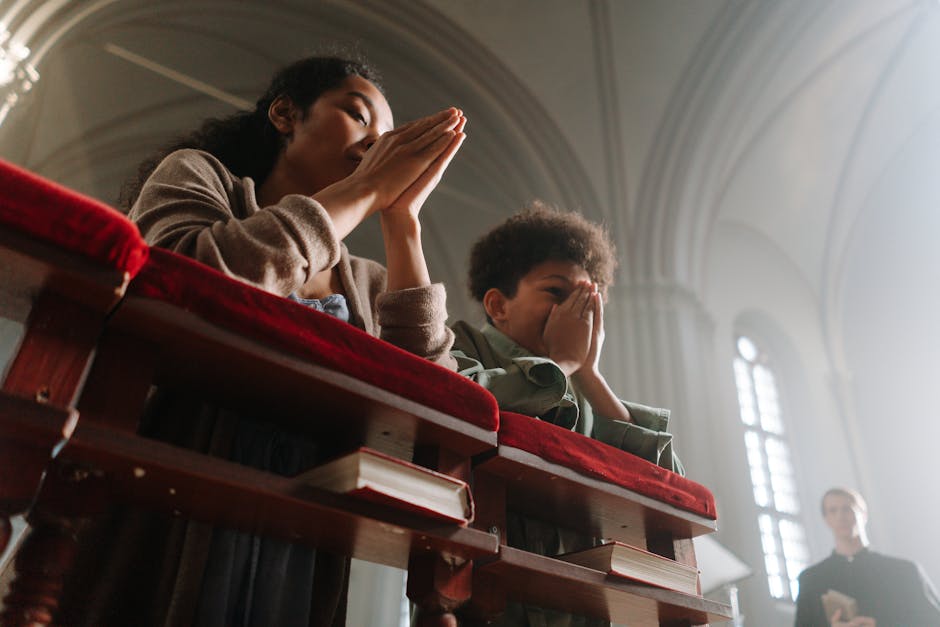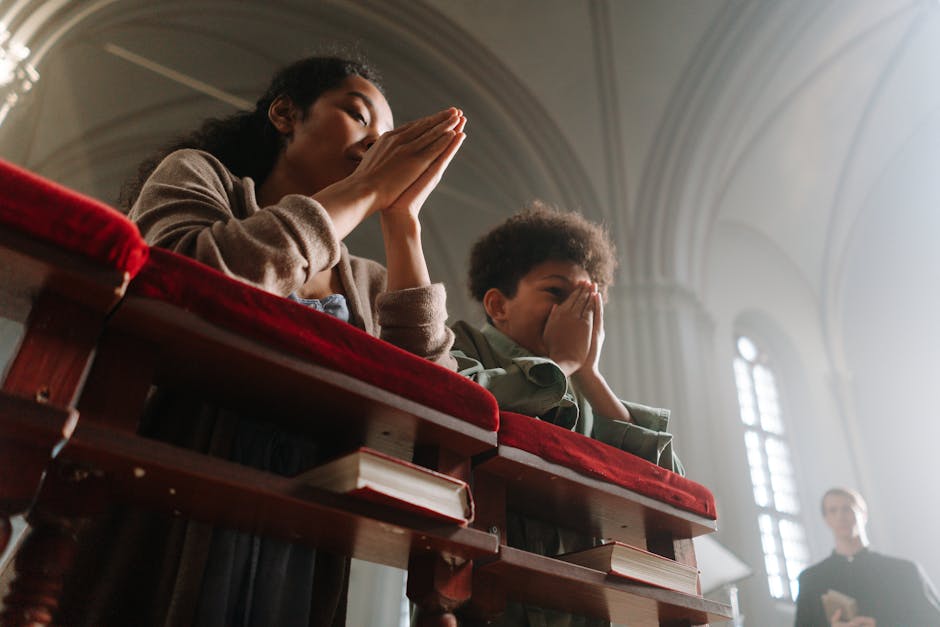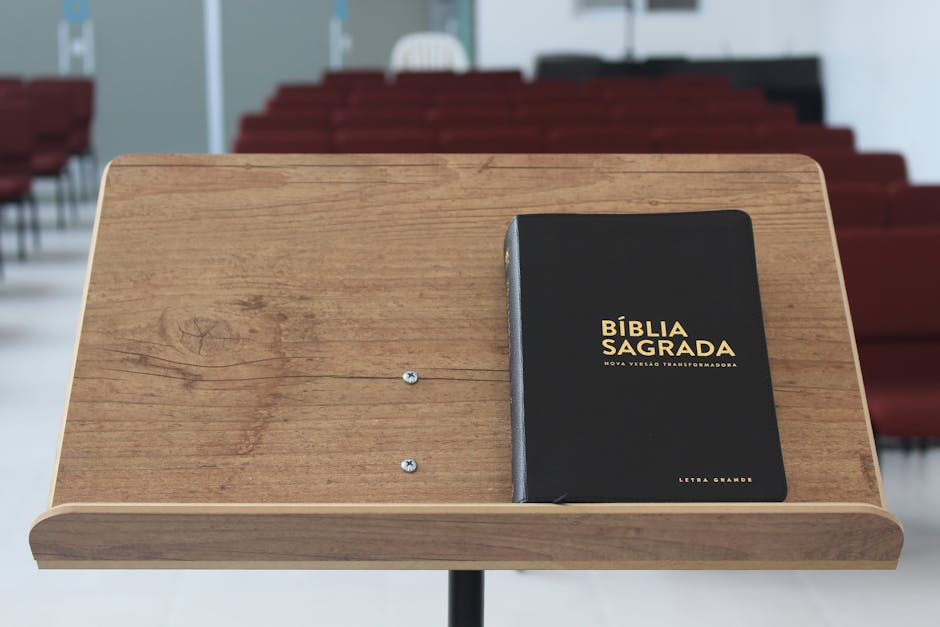Building Bridges of Mercy: The Catholic Call to Accompaniment
In a world of complex policies and human needs, our faith calls us not to retreat, but to walk alongside the vulnerable with prudence, charity, and a steady commitment to human dignity. This is the art of accompaniment, a path that requires both a compassionate heart and a discerning mind.
At times, Catholics find themselves at a difficult intersection where civil procedures and our Gospel mandate appear to conflict. This is often felt most acutely in places of confinement, such as immigration processing centers, where individuals are isolated and in great need of spiritual solace. When pastors seek to bring the sacraments to those in custody, they sometimes encounter barriers erected in the name of security or logistics. This presents a challenge not just for our bishops and priests, but for every member of the faithful. How do we remain true to Christ’s call to serve the least among us while engaging respectfully with the authorities who oversee public order?
The answer lies not in political posturing, but in a steady, prayerful commitment to the person. It is a call to see beyond the label of “detainee” to the reality of a human being made in the image of God—a person with a soul that thirsts for grace, especially in moments of crisis.
The Non-Negotiable Dignity of the Soul
At the heart of the Church’s concern is a profound theological truth: spiritual care is not an optional accessory to human life, but is essential to a person’s integrity and dignity. For Catholics, access to the sacraments—especially the Eucharist—is the very lifeblood of our faith. To be cut off from Holy Communion or from pastoral guidance is a deep and painful wound. This is why the Church consistently advocates for chaplains and ministers to have access to those who are imprisoned or detained.
This mission is a direct response to the Lord’s own words:
I was in prison and you visited me. (Mt 25:36)
This work of mercy is not conditioned on a person’s legal status or country of origin. It is a universal obligation rooted in our recognition that every individual possesses an inherent dignity that no policy or circumstance can erase. When government officials and Church leaders engage in dialogue about this issue, it is more than a debate over rules. It is a foundational conversation about our shared commitment to basic human rights, including the freedom to practice one’s faith, which is a cornerstone of a just society.
Prudence and Dialogue as Public Virtues
In navigating these sensitive situations, the Church offers a model of prudent and persistent engagement. Rather than adding to the noise of partisan division, our leaders often work to open channels of communication. They seek to understand the legitimate concerns of civil authorities, such as safety and order, while clearly and consistently articulating the spiritual needs of the people they are called to serve. This approach reflects a deep wisdom, one that seeks to build bridges rather than burn them.
This patient dialogue is a form of peacemaking, a witness to the belief that common ground can be found when both sides are committed to the common good. It demonstrates that the Church’s mission is fundamentally pastoral, not political. Assurances from public officials that the spiritual rights of detainees are being carefully reviewed are often the fruit of this kind of respectful, principled conversation. This work reminds us that charity and truth are not opposing forces; they are two wings that allow justice to take flight.
Blessed are the peacemakers, for they will be called children of God. (Mt 5:9)
Putting Accompaniment into Practice
The principles of dignity, mercy, and prudent dialogue are not just for bishops and public officials. They are virtues that every Catholic can cultivate in daily life. Whether in our parishes, our workplaces, or our families, we are all called to the work of accompaniment.
A Framework for Faithful Action
| Practice | Where to Apply | Why It Serves the Common Good | First Small Step |
|---|---|---|---|
| Listening with Humility | Parish meetings, family discussions, community forums. | It builds trust and allows for a deeper understanding of others’ perspectives, preventing division. | In your next conversation on a difficult topic, ask a thoughtful question instead of stating an opinion. |
| Prudent Speech | Social media, conversations with colleagues, public letters. | It fosters a climate of respect and constructive dialogue, avoiding the sin of calumny and rash judgment. | Pause and pray for a moment before posting or speaking about a contentious issue. |
| Concrete Acts of Mercy | Local charities, parish outreach programs, Catholic-owned businesses. | It translates faith into tangible help for the vulnerable, making the Gospel credible through action. | Volunteer for or donate to a local organization that serves migrants, refugees, or the poor. |
| Advocating for Dignity | Civic life, parent-teacher associations, workplace policy discussions. | It ensures that policies and structures honor the human person, protecting the vulnerable from injustice. | Learn about one specific policy affecting the marginalized in your community and share what you learn with a friend. |
| Spiritual Solidarity | Personal prayer, family rosary, parish holy hours. | It unites us with the suffering of others and calls down God’s grace upon difficult situations. | Add a prayer for those in detention and for civil leaders to your daily intentions. |
A Checklist for Welcoming the Stranger
The call to welcome and accompany can feel overwhelming, but small, consistent actions can build a true culture of hospitality. Here are a few places to start:
- Educate yourself and your family on the realities faced by migrants and refugees in your own community.
- Support Catholic organizations that provide legal, material, and spiritual assistance to newcomers.
- Encourage your parish to become a place of radical welcome for people from all cultural backgrounds.
- Examine your own heart in prayer, asking God to heal any fear or prejudice toward those you perceive as “other.”
- Use your voice and your vote to support policies that protect the family and uphold the dignity of every human life, from conception to natural death.
Do not neglect to show hospitality to strangers, for thereby some have entertained angels unawares. (Heb 13:2)
Ultimately, the Church’s witness in the public square is that of a mother. Where the world might erect walls of fear or bureaucracy, she seeks to build bridges of understanding and compassion. She knows that in every person who is marginalized or forgotten, it is Christ Himself who knocks at our door. Our proclamation of the Gospel is only as credible as our willingness to translate it into concrete gestures of closeness, solidarity, and welcome for every neighbor in need.
As we move forward, the path of accompaniment remains our central duty. It is a journey that requires patience, courage, and a deep-seated hope in the power of God’s mercy to transform hearts and shape a more just world. By embracing this call in our own lives, we participate in the Church’s timeless mission to be a sign of hope and a servant of humanity, ensuring that the dignity of every person is honored as sacred and non-negotiable.




